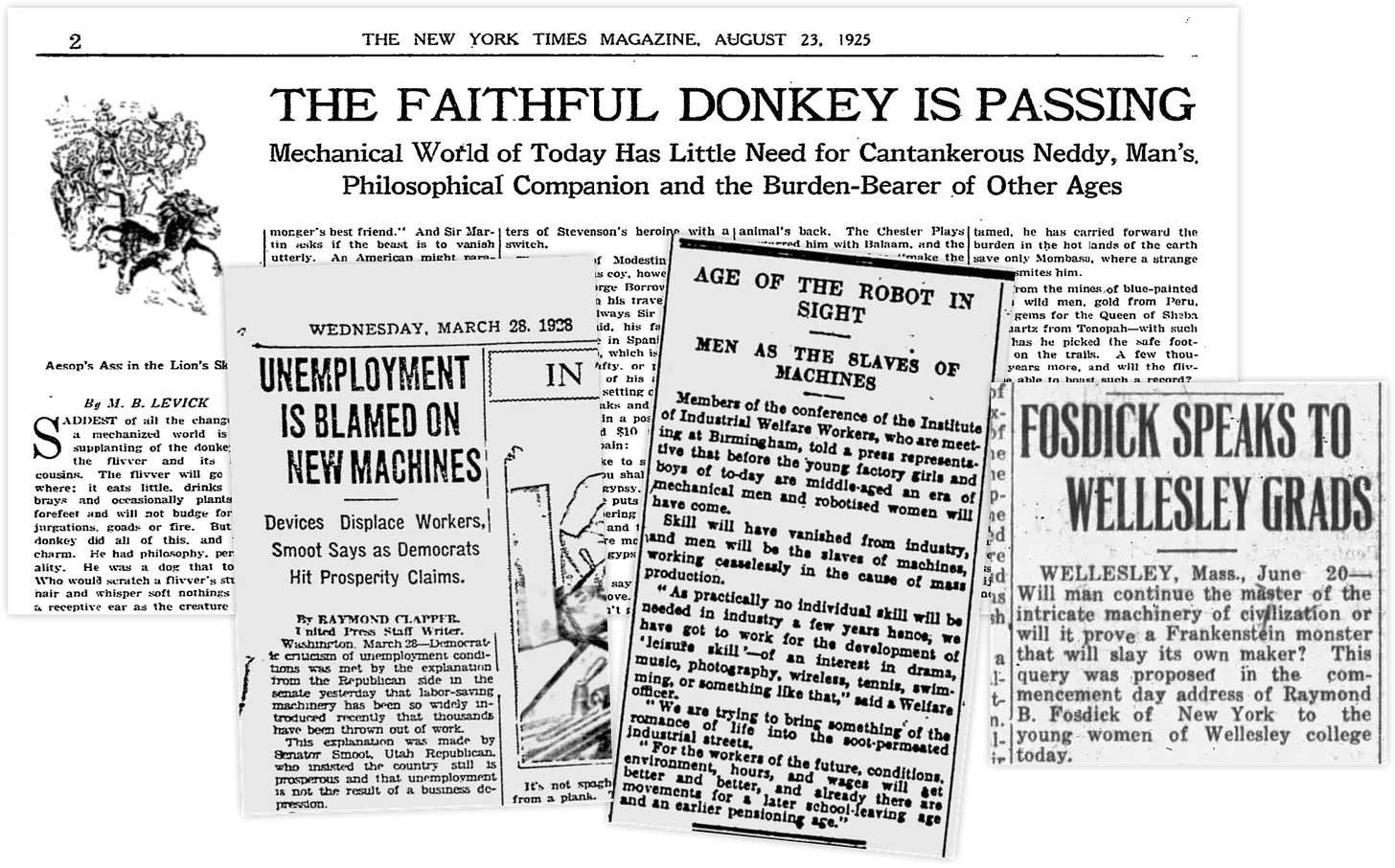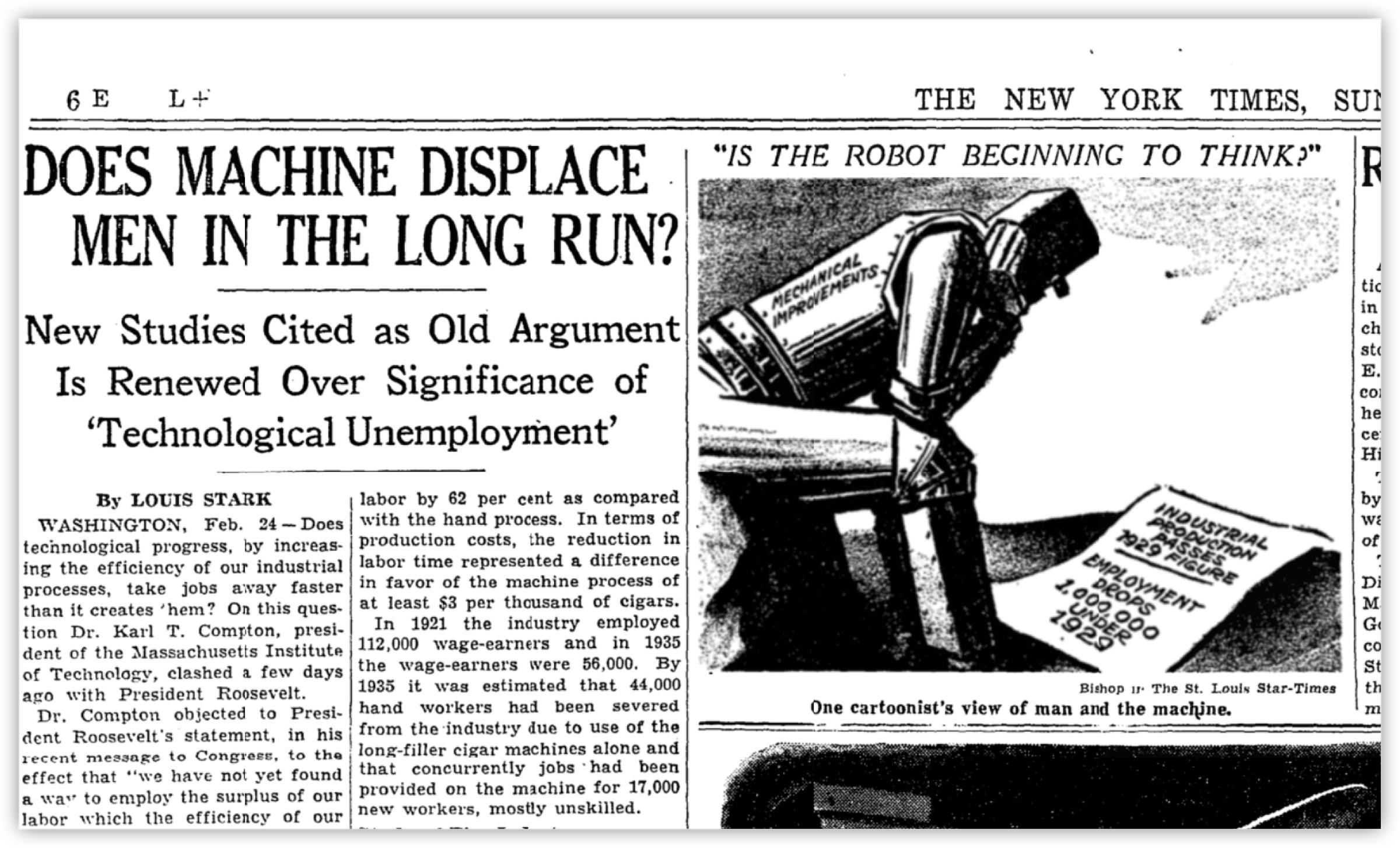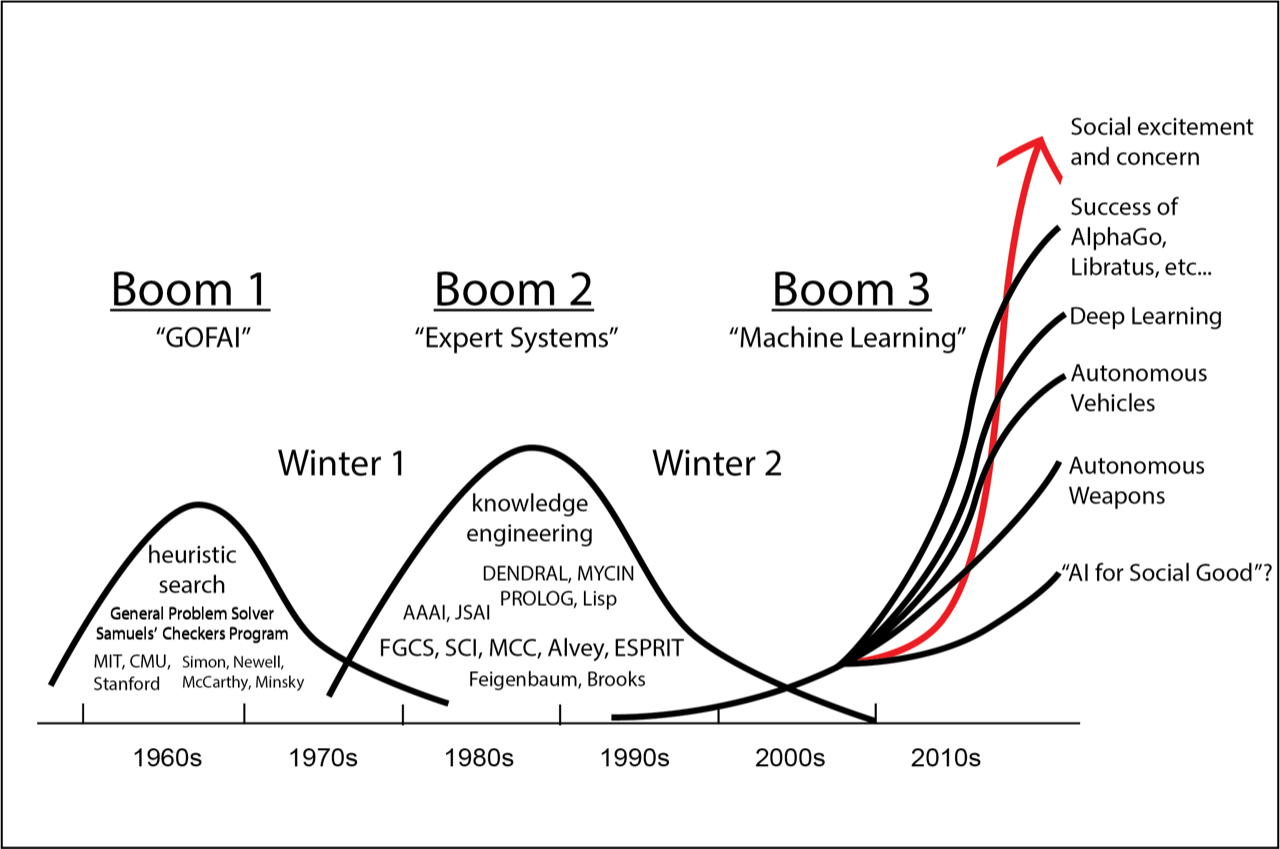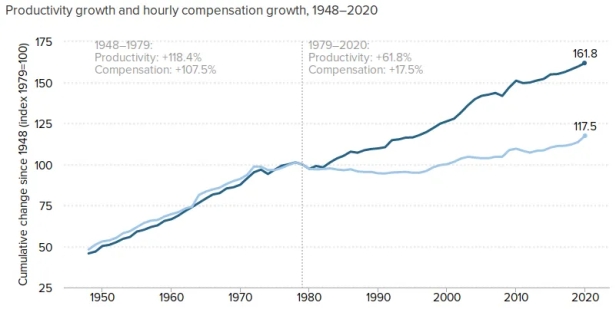
Darwin Among the Machines — [To the Editor of the Press, Christchurch, New Zealand, 13 June, 1863.]
Há uma relação ingénua com a tecnologia. As pessoas adquirem bens inseguros, vivem despreocupadas sem proteção contra abusos exponenciados pelos dispositivos tecnológicos e, quando tudo corre mal, acusam as empresas a quem compraram os equipamentos e os serviços ou disponibilizou as aplicações gratuitas que usam avidamente.
Evgeny Mozorov descreveu esta tensão considerando que “simpatizar com as tecnológicas é uma forma perversa de síndrome de Estocolmo”, em que se vê os culpados como os salvadores, “em que começas a simpatizar com o terrorista que te capturou”.

Artificial Intelligence and Financial Behaviour (2023)
E dá esta ideia de que Silicon Valley, e os seus produtos comerciais criados por empresas privadas, são sinónimo de progresso tecnológico. E de que se questionarmos estas empresas, se questionarmos o papel da tecnologia no nosso mundo e as motivações de quem está a lançar estas tecnologias, somos anti-ciência, estamos a travar o progresso, a interromper o arco do avanço humano.
Isso afeta a habilidade das pessoas de fazer as perguntas certas. E é combinado com o facto destas empresas serem privadas, de tudo o que fazem estar protegido por segredo corporativo. E com a capacidade que têm de contratar departamentos de marketing talentosos que escrevem histórias sobre o que estão a fazer sem incluir os factos materiais de como isso funciona. De onde vem o dinheiro, quais são os incentivos, o que move o modelo de negócio, que o melhoramento do humano não é o objectivo de facto. O objectivo é lucro infinito e crescimento perpétuo.
Meredith Whittaker: “A Inteligência Artificial reforça o modelo de negócio da vigilância”
Este sistema nunca poderia funcionar sem uma enorme quantidade de intervenção humana. Estamos perante um sistema impensavelmente caro que necessitaria de trabalho humano constante, de actualização constante. Estamos a falar de centenas de milhares de pessoas que ficam sem acesso às suas contas, sem qualquer recurso, o que prejudica a vida quotidiana das pessoas, o emprego e a economia. Trata-se de uma fantasia inventada por pessoas que não compreendem como é que estes sistemas funcionam efectivamente, como são dispendiosos e como são falíveis.
O que está a ajudar a impulsionar isto, a fazer com que pareça plausível, é o hype da IA. Esta está a pintar estes sistemas como sobre-humanos, como super capazes, o que leva a que o público, e mesmo alguns políticos, tenham a sensação de que a tecnologia pode fazer tudo.
Signal’s Meredith Whittaker: ‘These are the people who could actually pause AI if they wanted to’ (11 de Junho de 2023)
A inteligência artificial somos nós: Será que num planeta colocado nos cuidados intensivos pela irresponsável ação humana nos poderemos ainda considerar senhores das alavancas de controlo da “nossa civilização”? Será que existe alguma tecnologia, para além da IA, em que a prudência e a precaução tenham prevalecido sobre outras considerações, bastante menos nobres ou, até, profundamente anti-humanistas? Como é que seria possível esperar qualquer moratória no desenvolvimento da IA quando esta, como quase tudo aquilo que é “inovador”, pertence na esfera crucial do financiamento e das encomendas ao “complexo militar industrial”, inserindo-se na lógica da luta pela hegemonia entre as grandes potências, como o sangrento laboratório da guerra na Ucrânia o exemplifica?


Robots Have Been About to Take All the Jobs for 100 Years
In March, Goldman Sachs estimated that the technology behind popular A.I. tools such as DALL-E and ChatGPT could automate the equivalent of 300 million full-time jobs. Researchers at Open AI, the maker of those tools, and the University of Pennsylvania found that 80 percent of the U.S. work force could see an effect on at least 10 percent of their tasks.
“There’s tremendous uncertainty,” said David Autor, a professor of economics at the Massachusetts Institute of Technology, who has been studying technological change and the labor market for more than 20 years. “And people want to provide those answers.”
But what exactly does it mean to say that, for instance, the equivalent of 300 million full-time jobs could be affected by A. I.?
It depends, Mr. Autor said. “Affected could mean made better, made worse, disappeared, doubled.”
The A.I. Revolution Will Change Work. Nobody Agrees How.

Outras leituras:
ChatGPT Is an Ideology Machine: AI is a culture machine.
The AI PR Industrial Complex: Forget the technology’s capabilities, there’s money to be made and points to score.
Beware of AI pseudoscience and snake oil
How Bullshit Has Dominated The Tech Industry

The future of work : what does it mean for employees?
We are all AI’s free data workers
A.I.’s dirty secret: Behind the AI chatbots and delivery robots are human workers, hidden from sight, keeping everything running. (…) Instead of improving productivity, automation is often focused on increasing the power that employers have over workers. (…) New technologies like AI are framed as offering us various forms of empowerment and liberation: We’ll be able to work more productively, spend less time doing our chores, and anything we want will be a click or tap away. But those promises never paint an accurate picture of how that tech is transforming the world around us or the true cost of those supposed benefits. Automation may empower some people, but in the process, it’s making things a lot harder for the hidden workers keeping everything moving.
Will AI Fix Work? The pace of work is outpacing our ability to keep up. AI is poised to create a whole new way of working.
AI and the future of work: 5 experts on what ChatGPT, DALL-E and other AI tools mean for artists and knowledge workers
Generative AI will change the world—but won’t put creative jobs at risk
AI Can’t Take Over Everyone’s Jobs Soon (If Ever): Models are still expensive to run, hard to use, and frequently wrong
Claims About Generative AI Replacing Jobs Are Hyperbolic and Misleading
AI Won’t Kill Our Jobs, It Will Kill Our Job Descriptions—and Leave Us Better Off
AI won’t steal your job, people leveraging AI will
IBM to Pause Hiring for Jobs That AI Could Do
How AI Is Helping Companies Redesign Processes
Fearing lawsuits, factories rush to replace humans with robots in South Korea: In January, a law came into effect called the Serious Disasters Punishment Act, which says, effectively, that if workers die or sustain serious injuries on the job, and courts determine that the company neglected safety standards, the CEO or high-ranking managers could be fined or go to prison. Experts and local media say that the law has shaken the heavy industry and construction sectors. Along with pushing the companies to invest to make workplaces safer, they point out, it’s triggered a ramp-up of automation in order to require fewer workers — or, ideally, none at all.
The supply, demand and characteristics of the AI workforce across OECD countries: There is significant variation in the size of the AI workforce across countries. The largest share of employment with AI skills is found in Northern European countries and the United Kingdom (around 0.45%), while Southern European countries such as Greece, Italy, Spain and Portugal have the smallest shares (<0.27%). (…) The highest growth rates for the AI workforce were found in the Netherlands, Portugal and Greece. The smallest growth rates were found in the United States, Germany and Norway. However, it is the difference between the growth rate of employment overall and the rate for the AI workforce which provides the clearest interpretation of labour demand, and on that metric, there is little difference between the countries.
Americans think AI is someone else’s problem: AI is coming to the workplace, but most people think it won’t affect them much.
AI threatens humanity’s future, 61% of Americans say
Evolution is making us treat AI like a human, and we need to kick the habit
AI is a false prophet: AI has no direct and concrete ties to the actual world, to which it relates only through the medium of binary notation. Self-enclosed in the electronic ether, it dwells nowhere, fears and loves nothing, and has no individual point of view. Does it make sense to grant autonomy and agency to an intelligence that has no natural connection to human needs?
Faut-il avoir peur de ChatGPT? Trop intelligente pour certains, trop stupide pour d’autres. Révolution ou arnaque?
Why AI Will Save the World, by Marc Andreessen
Let me tell you, ChatGPT-like AI will not change our world
Most AI Fear Is Future Fear: If long term change has on net been good, counting as progress, we can credit that in part to widespread ignorance of future change. Making moments of clarity like today’s AI vision especially dangerous. The world may well vote to stop this change. And then also the next big one. And so on until progress grinds to a halt.

Why 25% of teens can’t answer this question: What jobs do 15-year-olds expect to do at 30?

Sabes o que te digo?
https://xkcd.com/2347/